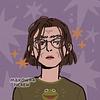Take a photo of a barcode or cover
challenging
sad
fast-paced
Plot or Character Driven:
Character
Strong character development:
Yes
Loveable characters:
Complicated
Diverse cast of characters:
Yes
Flaws of characters a main focus:
No
Op bijzonder vernuftige wijze laat Mulisch in dit boek zien dat we allemaal proberen door te gaan met het leven, maar dat het verleden toch altijd weer een schaduw over het heden blijft werpen. Mulisch werkt een aantal interessante gedachtes uit, die ook na het lezen van het boek nog in je hoofd blijven doorspelen. Met recht een klassieker te noemen.
This is a classic book which should be read by anyone interested in WWII, or for that matter, human nature.
This is the story of a man who slowly learns the truth about the events which led to the death of his family. What we perceive to be true may not be; those who seem to be our friends may not be.
This is a work of art.
This is the story of a man who slowly learns the truth about the events which led to the death of his family. What we perceive to be true may not be; those who seem to be our friends may not be.
This is a work of art.
About the lasting effects of the Second World War, and the rapidly changing culture that we inhabit. A reminder of the blank (and sometimes terrifying) future we might face, and a vivid description of the past that we share.
dark
emotional
sad
tense
medium-paced
Plot or Character Driven:
Character
Strong character development:
Complicated
Loveable characters:
No
Diverse cast of characters:
No
Flaws of characters a main focus:
Yes
challenging
dark
emotional
hopeful
informative
inspiring
reflective
sad
tense
medium-paced
Plot or Character Driven:
Character
Strong character development:
Complicated
Loveable characters:
Complicated
Diverse cast of characters:
No
Flaws of characters a main focus:
N/A
dark
emotional
reflective
sad
medium-paced
Plot or Character Driven:
A mix
Strong character development:
Yes
Loveable characters:
Yes
Diverse cast of characters:
No
Flaws of characters a main focus:
Yes
Na het herlezen van [b:Nooit meer slapen|13543973|Nooit meer slapen|Willem Frederik Hermans|https://i.gr-assets.com/images/S/compressed.photo.goodreads.com/books/1331829823l/13543973._SY75_.jpg|1187191] van W.F. Hermans wilde ik ook Harry Mulisch (1927-2010) een nieuwe kans geven. [b:Twee vrouwen|15743427|Twee vrouwen|Harry Mulisch|https://i.gr-assets.com/images/S/compressed.photo.goodreads.com/books/1357845179l/15743427._SY75_.jpg|85302] is in mijn herinnering het vreselijkste boek dat ik ooit las; [b:De ontdekking van de hemel|1942723|De ontdekking van de hemel|Harry Mulisch|https://i.gr-assets.com/images/S/compressed.photo.goodreads.com/books/1245232918l/1942723._SY75_.jpg|85295] kon dat beeld twee jaar geleden niet rechtzetten.
De aanslag (1982) opent daarentegen ijzingwekkend goed. Anton Steenwijk is twaalf jaar oud wanneer een spelletje mens-erger-je-niet met zijn broer en ouders ruw verstoord wordt door zes pistoolschoten. Het is januari 1945, het huis in Haarlem is tijdens de hongerwinter donker en koud. Voor de deur van de buren ligt hoofdinspecteur van politie Fake Ploeg, berucht om zijn wreedheid. beleeft Anton een nacht die zijn leven kentert.
Mulisch keert in vier delen terug naar het leven van Anton: als student in 1952 en 1956 en als man en vader in 1966 en 1981. Wat opvalt is Mulisch schetst en passant een beeld van het naoorlogse Nederland, waarin de vraag naar schuld en boete nog niet eensluidend beantwoord was. Het deed me denken aan het prachtige [b:De geheugenlozen|46023613|De geheugenlozen|Géraldine Schwarz|https://i.gr-assets.com/images/S/compressed.photo.goodreads.com/books/1558947918l/46023613._SY75_.jpg|57946388] (2019) van Géraldine Schwarz over de omgang met die vraag na de Tweede Wereldoorlog in verschillende Europese landen.
Vooral de laatste delen kabbelden naar mijn smaak teveel voort. Het leven van Anton is niet bijster interessant en hoewel zijn houding misschien waarachtig is, maakte deze het verhaal beslist niet spannender. Daarentegen is het einde uitstekend, wanneer Anton
Hermans mag voor mij dan de beste van de twee zijn, dankzij De aanslag kan ik Mulisch beter waarderen.
De aanslag (1982) opent daarentegen ijzingwekkend goed. Anton Steenwijk is twaalf jaar oud wanneer een spelletje mens-erger-je-niet met zijn broer en ouders ruw verstoord wordt door zes pistoolschoten. Het is januari 1945, het huis in Haarlem is tijdens de hongerwinter donker en koud. Voor de deur van de buren ligt hoofdinspecteur van politie Fake Ploeg, berucht om zijn wreedheid.
Spoiler
Wanneer buurman Korteweg het lichaam vervolgens een deur verder sleept,Mulisch keert in vier delen terug naar het leven van Anton: als student in 1952 en 1956 en als man en vader in 1966 en 1981. Wat opvalt is
Spoiler
zijn gelaten houding: dat Anton de toedracht achter de aanslag ontdekt, is niet te danken aan nieuwsgierigheid, maar aan toeval – Iedereen heeft gedaan, wat hij heeft gedaan, en niet iets anders. Daarmee staat Anton als ‘toevallige omstander’ in schril contrast tot degenen die achter de aanslag zaten.Vooral de laatste delen kabbelden naar mijn smaak teveel voort. Het leven van Anton is niet bijster interessant en hoewel zijn houding misschien waarachtig is, maakte deze het verhaal beslist niet spannender. Daarentegen is het einde uitstekend, wanneer Anton
Spoiler
– opnieuw toevallig – dochter Karin Korteweg ontmoet. ‘O god, de hagedissen’ is toch zeker zo memorabel als ‘Buurman, wat doet u nu?’Hermans mag voor mij dan de beste van de twee zijn, dankzij De aanslag kan ik Mulisch beter waarderen.
Once again, this novel's magic lies in the author's handling of the narrator. Published in 1985, I have no idea why we didn't read this after reading all those heavy holocaust novels, perhaps because in this novel, there is no easy discussion in the classrooms. But because of the large room of thought this novel creates, I feel it is all the more important.
When I say The Assault is though-provoking, I am freely invoking that cliché. Perhaps you know how deeply personal The Assault was for me as it dealt with things that German children must cope with on their own, guilt, the past, ignorance, excuses, avoidance, et cetera. I'd never inspected my coping methods as acutely as when confronted in spectacular luminosity the way in which Anton avoids the past his entire life. But like the Greeks, he is always facing it.
The Assault reminded me of Kazuo Ishiguro's Remains of the Day its quiet narrator who reflects on events typical of the second world war, but there the similarities end. Had this been eligible, The Assault would have won the Booker prize, but what are awards anyway? Where Remains had been affable in it's avoidance, there is no pretension about what Mulisch and Anton conspire to do. Anton refuses to remember, forced down 'memory-lane' while it is his subconscious that lures him into not turning away the unwanted guest, yearning to be fulfilled.
A reader might be tempted to pity Anton from the blurb, as one freely did after reading Remains, but pity or hate the butler, Mulisch does not bring us through these moments, titled 'episodes', to make us feel sorry. Mulisch, in actuality, feels sorry for us, the readers. But he does not pose questions of morality to us with apology. These are things we all must face in our lives, unless we are like that aloof butler traveling the countryside.
This novel isn't cynical, nor is it hopeful in the way The Minotaur Takes a Cigarette Break by Steven Sherril is. The heart races as the events in Anton's life come to a head, but we do not pity him, not because he is unsympathetic and 'merely' the child of fate, but because Mulisch has written a concise novel that does not have room for misplaced tears. We mourn the lost child, the one whom Anton has forgotten, who died along with the rest of his family. Perhaps because Anton has been indifferent for so long, that when he finally concludes this history and looks to other memories, we only feel immense satisfaction.
I am letting myself imagine, now that the book is shut, that Anton has begun to come to his own conclusions about the many questions that Harry Mulisch poses, as I must now attempt to do. But further, that Anton changes his life, going home and finally climbs up into the cockpit, and finally opens up to the person that he once was.
While I will not answer any of the questions posed within, dealing with our history, the morality of causalities, the innocence of the guilty, I am curious about your own thoughts. The tome is not very long, and it is a fabulous piece of literature, important for many reasons, and I encourage you to read it, if not immediately buy it. Once you have, come back and let me know your thoughts. I gladly welcome discussion in the comments.
185pp. Random House. 1985.
You can read more of my shenanigans at auroralector.blogspot.com
When I say The Assault is though-provoking, I am freely invoking that cliché. Perhaps you know how deeply personal The Assault was for me as it dealt with things that German children must cope with on their own, guilt, the past, ignorance, excuses, avoidance, et cetera. I'd never inspected my coping methods as acutely as when confronted in spectacular luminosity the way in which Anton avoids the past his entire life. But like the Greeks, he is always facing it.
The Assault reminded me of Kazuo Ishiguro's Remains of the Day its quiet narrator who reflects on events typical of the second world war, but there the similarities end. Had this been eligible, The Assault would have won the Booker prize, but what are awards anyway? Where Remains had been affable in it's avoidance, there is no pretension about what Mulisch and Anton conspire to do. Anton refuses to remember, forced down 'memory-lane' while it is his subconscious that lures him into not turning away the unwanted guest, yearning to be fulfilled.
A reader might be tempted to pity Anton from the blurb, as one freely did after reading Remains, but pity or hate the butler, Mulisch does not bring us through these moments, titled 'episodes', to make us feel sorry. Mulisch, in actuality, feels sorry for us, the readers. But he does not pose questions of morality to us with apology. These are things we all must face in our lives, unless we are like that aloof butler traveling the countryside.
This novel isn't cynical, nor is it hopeful in the way The Minotaur Takes a Cigarette Break by Steven Sherril is. The heart races as the events in Anton's life come to a head, but we do not pity him, not because he is unsympathetic and 'merely' the child of fate, but because Mulisch has written a concise novel that does not have room for misplaced tears. We mourn the lost child, the one whom Anton has forgotten, who died along with the rest of his family. Perhaps because Anton has been indifferent for so long, that when he finally concludes this history and looks to other memories, we only feel immense satisfaction.
I am letting myself imagine, now that the book is shut, that Anton has begun to come to his own conclusions about the many questions that Harry Mulisch poses, as I must now attempt to do. But further, that Anton changes his life, going home and finally climbs up into the cockpit, and finally opens up to the person that he once was.
While I will not answer any of the questions posed within, dealing with our history, the morality of causalities, the innocence of the guilty, I am curious about your own thoughts. The tome is not very long, and it is a fabulous piece of literature, important for many reasons, and I encourage you to read it, if not immediately buy it. Once you have, come back and let me know your thoughts. I gladly welcome discussion in the comments.
185pp. Random House. 1985.
You can read more of my shenanigans at auroralector.blogspot.com
“Wij haten de haat, en daarom is onze haat beter dan de hunne. Maar daarom hebben wij het in moeilijker dan zij. Voor hen is alles heel eenvoudig, maar voor ons is het ingewikkeld.”







